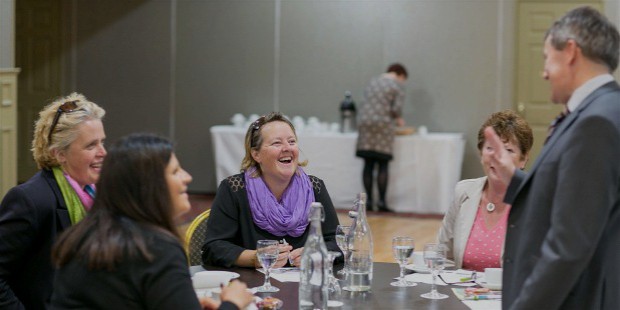Ten Social Skills to Win in the Society

There is a popular perception that intelligence quotient (IQ), education, wealth, family, social status are important factors that determine the success of an individual.
These factors may give you an edge over others but man being a social animal, how he interacts, responds, communicates with others will be a deciding factor in getting a job, running a business better or in building relationships for social and business life.
Here are ten social skills you require for success:
1. Listen Better and Respond

Often when you are engaged in a conversation, you interrupt, don’t listen properly or try to speak more in a competitive manner. As Stephen Covey said, most people listen to reply but not to understand, so listen more and respond.
2. Have Sympathy

Most often people like you because you understand their feelings and emotions. You may have to sympathize with a friend who has lost a dear one, or met with a misfortune. At a funeral, a simple pat on the shoulder is appropriate.
3. Be Lavish in Praise

Just as you sympathize with your friends and associates, you need to show happiness in their success and achievements too. This creates a good rapport and makes you appear genuine.
4. Importance of Smile and Laughter

Successful people smile more and that creates an atmosphere of friendliness and accessibility. Don’t overdo it, as an inappropriate laughter can spoil the show. But respond positively to jokes and asides.
5. Turn the Focus Away from You to Them

We often dislike people who only think about themselves and expect you to like them. Show interest in others through your tone of voice and body language. When meeting a client, focus on meeting his/her needs rather than the merits of your product.
6. Don’t Criticize, Complain or Condemn

It’s easy to be critical of someone or raise complaints which may temporarily make you feel important but it belittles the other person and spoils relationships. Complaints or accusations have to be specific and not aimed at a person as such. It is the act that is disputed, not the person.
7.Maintaining Eye-Contact

Inability to maintain eye contact in conversations signifies a lack of confidence or interest. Therefore, ensure that you sustain eye contact especially during business meetings, interviews and even in a public speech. However, avoid staring at someone, as it can make them uncomfortable or insecure.
8. Control Anger and Avoid Arguments

When you get into arguments, you become defensive and even if you win, you lose a good friend as negative feelings mount.
9. Respond, not React

Most often we react in times of a crisis or adversity, not respond. Often, what happens is beyond our control but you can control your response to it.
10. Be Courteous

In daily interactions, a simple ‘Thank you’, ‘Sorry’, ‘Please’, ‘Welcome’, ‘Pardon me’ can make a tremendous impact on others. It doesn’t cost much to say it.
You might have seen many intelligent, bright, talented, creative people unable to reach their true potential in career and in life because they have lower emotional intelligence compared to others. Daniel Goleman, who wrote Emotional Intelligence, popularized the concept of emotions and the need to control them in interpersonal communications. Schools now teach emotional skills and more often it is assessed at job interviews to determine whether you are the right fit for a functional role or a job. With a little professional help from counselors and books, and having an open mind can help you attain greater success in life.









